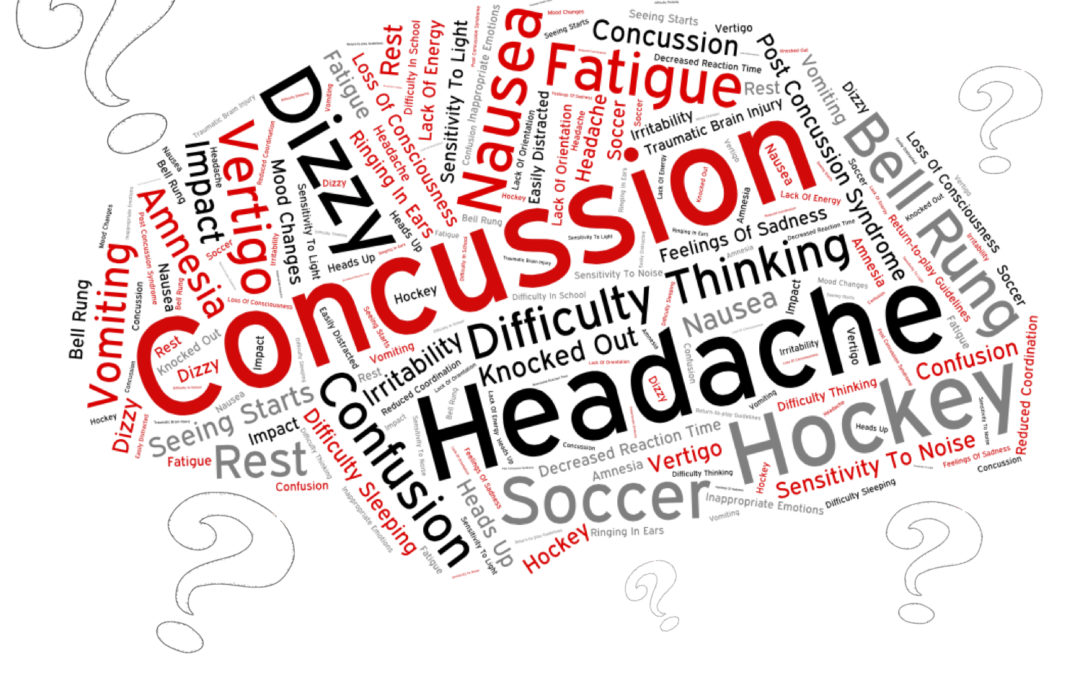As you probably know, a concussion is the result of a direct blow to the head. The impact creating a concussion also affects the neck-creating a neck strain, and possibly joint mobility changes in the neck. So as the brain heals from the concussion, you may continue to have symptoms. It is common to have dizziness, headaches, and balance changes that are caused from neck associated disorders. Of the people who continue to have concussion symptoms after the initial phase (14 days for adults, or up to 4 weeks for kids) 71% complain of headaches, and 34% complain of dizziness. These both could be caused from the neck, and the dizziness could also be caused from a dysfunction of the vestibular system.
The signs and symptoms of an acute concussion may come on over 24 to 48 hours following impact to the head. These can include amnesia, headache, dizziness, nausea, fatigue, drowsiness, sleep disturbances, balance disruptions, confusion, “foggy” feeling, reduced concentration, slow reaction time, irritability, anxiety, depression, being more emotional than usual. It is common to get a few of these symptoms, but one person is unlikely to experience all of them.
If you experience a concussion, you would benefit from seeing physiotherapist for an assessment and early advice for healing. They will also be able to help you with keeping your recovery on track. Our therapists are experts in manual therapy to treat the changed muscle strength and joint mobility in the neck. We have a therapist trained in assessing and treating the vestibular system if your dizziness continues. Keep us in mind the next time you or someone you know experience a concussion.
Posted by: Leanne Schlachter

